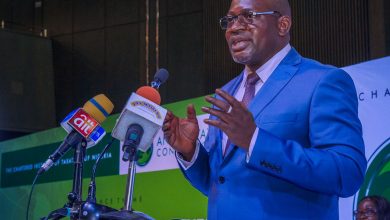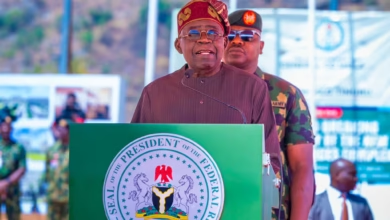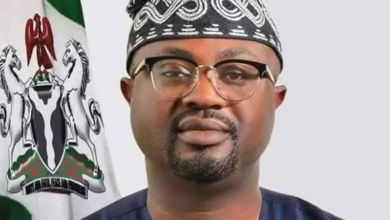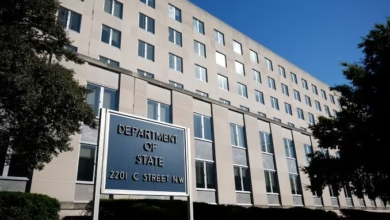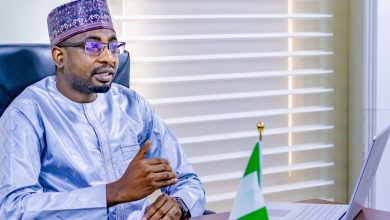NewsPress release
POWER SUPPLY: FG Working with all Stakeholders to Solve Generation, Distribution Challenges
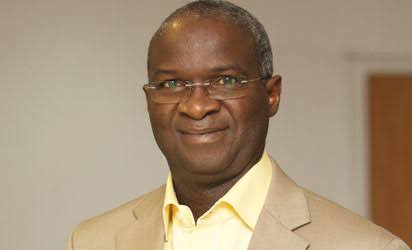
Contrary to the rather sensational headline stories in some national dailies, the Federal Government is working assiduously with various stakeholders in the Power Sector to solve the challenges hindering power supply especially along the Generation and Distribution value chain of the sector.
Some national dailies, especially the Vanguard, which Friday published a front-page sensational headline story of remarks made by the Minister at a Media event, have alleged that the Minister of Power, Works and Housing, Mr. Babatunde Fashola SAN, had on Wednesday, at the monthly Nextier Power Dialogue in Abuja, absolved the Federal Government of any blame in the challenges confronting power supply in the country.
But in a statement Friday, in order to set the records straight over his remarks at the Power Dialogue, Fashola said the government has, through several policy initiatives since inception and, especially in the last few months, demonstrated its commitment to the enhancement of power generation and distribution citing the recent approval of a N72 Billion Distribution Expansion Programme by the government as a clear demonstration of that commitment.
Fashola said the Government, as a 40 per cent shareholder, had to make the approval in order to enhance the distribution of power across the country pointing out that although operationally there is 7,000 Megawatts of electricity ready for deployment, the operation was still constrained at the distribution end.
The Minister said the concern of government was to correct the anomaly created by the distribution constraint adding that to ensure that the intervention achieved maximum benefit for the people, Government, working with the Distribution companies (DisCos), first obtained the data of the priority areas of need within their franchises with which it put together the programme to enable the DisCos maximally evacuate available power for distribution to consumers.
He said although the power sector Operation was now largely in private hands, Government was still playing a leading role in both enhancing the distribution of grid electricity and increasing access to electricity across the country, especially the rural communities adding that it was also ensuring, through the Nigerian Electricity Regulatory Commission (NERC), that power supply gets to consumers at very reasonable costs and without exploitation.
Recalling the policy outline laid by his Ministry at inception which set out a roadmap to first get incremental power and then go to steady power and then to uninterrupted power, Fashola declared, “I think that if you followed the policy outline that set out that roadmap, we have delivered what we promised in terms of our first leg of incremental power. We have increased the power on all sides”.
Other policies which government has initiated in recent times to drive access to electricity, the Minister said, include the Mini-Grid/Off-Grid policy by which government has decentralized power supply, allowing individuals and organizations to invest in power generation and supply up to a certain limit, Eligible Customer Policy that enables big consumers to buy power directly from Generation Companies (GenCos) and Meter Asset Provider (MAP) policy enabling business men to invest in meter supply, adding, however, that all the policies are subject to the regulation of NERC.
On the Power Sector Recovery Programme (PSRP) of the administration, the Minister, who noted that the document was articulated as means to address some post Privatization challenges in the sector and improve power supply, said the PSRP was a document that sought to articulate all of the problems that were being reported about the Privatization adding that all the problems arising from privatization were documented in the PSRP Document.
Such issues, he said, include those of generation, transmission, energy theft and tariff issues among others adding, “All the problems that were in the Sector we sat down and documented them as a programme. Everything that we learnt was a problem, we took it down as the Power Sector Recovery Programme. And then we proposed solutions to each problem and we assigned a department, Ministry, Agency of Officer who was responsible for solving a particular problem”.
On the involvement of the World Bank, Fashola explained, “As we were doing it, the World Bank wrote to us and said we had to undertake reforms in this Sector to make it work and when we presented what we were undertaking to them, they said “what we were going to recommend to you was not as extensive as what you have agreed voluntarily to undertake yourself. If you are going to do this then we will put money behind it”.
The Minister, however, said PSRP was not all about the World Bank loan adding, “The World Bank loan is just a component of the PSRP. We couldn’t reach a conclusive negotiation because some Departments felt that additional provisions had to be made. That was a sticky point”.
“However, of the basket of issues in the PSRP, people seem to have identified the World Bank Loan as the be-all-and-end-all of the PSRP. Certainly not and it is not off the table”, he said adding that while the loan from the World Bank was still there, there were loans for the Transmission Company of Nigeria (TCN) for expansion from the same World Bank and loans from the African Development Bank (AFDB) for Rural Electrification.
According to Fashola, “World Bank alone doesn’t have all the money that we need. So addressing the liquidity problem is coming through; it does not mean that PSRP is not working. Indeed it has delivered and that is indeed why I could report today that we had an 18 per cent growth contribution to the GDP. It is because the PSRP is working.
“The PSRP has not gone idle. We are ticking the boxes. There was no Chairman for the NERC, now there is a Chairman, problem solved; there was MDAS Debts owed, I think over N70 Billion, we verified N27 Billion, that was part of the PSRP and it was paid; there was a Transmission Expansion Programme, Transmission has gained more than Distribution, that is progress”, the Minister said.
The Minister said Transmission now has a 10-Year Expansion Plan just as 3,000 Megawatts have since been added to what was on ground when the administration took over. He said the new big problem that has now emerged was that of how to sell was has been generated.
Recalling that when he took office there was a view that the privatization was not working and should be cancelled, Fashola, who advised that cancelling contracts would not benefit the country, declared, “PSRP is working, Transmission is improving, there is still Energy theft issue, there is no plan or document that is cast in stone. And we expect that at a time, we would sit down, take off what we have done and write a second edition and move on”, he said.
And throwing more light on the remarks he made at the Nextier Dialogue, especially with reference to the allegation that he absolved the Federal Government from blame with regards to challenges in power supply, Fashola, who recalled that the remark was in response to a specific question posed by a participant during the Interactive Session concerning the supply of transformers, reiterated that all the assets that the Ministry of Power used to control for power distribution have been sold by the last administration and pointed out that the people now operating the Generation and Distribution segments of power sector are privately owned companies.
The Minister, who noted that his role was more of policy making, pointed out that Government’s continued intervention in the sector was because of its concern adding that there was need for consumers to be well enlightened on where to go when they have problems such as transformer supply, as, according to him, “The Ministry does not supply transformer anymore”. He, however, added “Government would not separate itself from the problem and, as I said at the Dialogue, I am trying to get involved to do what the law allows me to do”.
The Minister, who expressed dismay at the propensity of some sections of the Nigerian Media to sensationalize issues, recalled his reference to the 3rd Quarter Report of the National Bureau of Statistics, at the same Dialogue, which revealed that Electricity made the highest contribution of 18 per cent to the 1.8 per cent growth in the nation’s Gross Domestic Product (GDP) wondering how many newspapers and social media platforms reported that aspect.
He also recalled the “Thank You” visit of the Gora Community of Nasarawa State to his office earlier in the week to express their gratitude to the Federal Government over the provision of Solar Power to their Community saying such testimonies to the growth in electricity supply and increase in accessibility to the rural communities should make headlines in the media instead of deliberate representation of facts.

